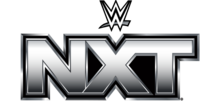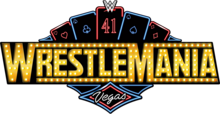
The inside scoop on WCW Magazine with former editor Kevin Eck
Take a look inside WCW Magazine
Now a WWE producer, Kevin Eck joins WWEClassics.com for an exclusive interview to discuss the magazine’s history, his role with the publication, his favorite interviews, Vince Russo, Eric Bischoff and the state of the organization during its tumultuous final year.
KEVIN ECK: In 1999, my fiancée – now my wife – wanted to go on a cruise, so I took her on the WCW Bruise Cruise. When you go on a cruise, you have assigned seating and we just happened to be sitting with some people who worked in the WCW front office. We got to talking and I mentioned I was a writer and editor for the Baltimore Sun. They explained that they were relaunching WCW Magazine and looking for writers. I figured I'd make some extra money on the side as a contributor and after a few months of nothing, they offered me the position of editor.
WWECLASSICS.COM: What was your opinion of WCW magazine before you were hired?
ECK: I always found it to be cheesy and it wasn't laid out well. It was very hard to follow and it was not reader-friendly at all, that was a major reason I didn't read it. I wasn't so much a regular reader of the WCW or WWE magazines; I was more interested in following the [noted wrestling journalist, Bill] Apter mags which were about sports-entertainment as a whole.
But to be honest, at the time I really did prefer WWE Magazine, especially when WWE introduced Raw Magazine. I was a huge fan because it was very open and less about rivalries and more about lifestyle.
WWECLASSICS.COM: You had some concern with the publication’s content at first and wanted to make a change. Were you basically given control of the magazine's direction?
ECK: In the beginning, there was a huge budget and my problem with it, content-wise, was that it had no clear direction. It was trying to be both WWE and Raw Magazine. There would be articles and features about what happened on Nitro or Thunder, but then you'd turn the page and someone would do an interview that had nothing to do with what was happening on the shows. I wanted to go one way or the other, so when the publisher left it up to me, I decided to go the way of Raw Magazine.
ECK: It’s funny because the first week I actually started, it was the beginning of the Russo-Bischoff regime [of TV storytelling]. The line between reality and story was often blurred, so I didn't want the magazine to insult anyone's intelligence.
From the very beginning, there were rumors and rumblings that Time Warner wanted to sell – not that the company was going to fold, exactly. That was definitely a concern for me, especially after leaving the Baltimore Sun and moving to Atlanta. But I really thought the Russo-Bischoff thing was going to be good. Right before that, the show was really bad. The Wall and Crowbar were the highlight every week, then Russo and Bischoff immediately brought back Kevin Nash and Hulk Hogan and I thought it could go somewhere positive.
VIEW PHOTOS FROM THE HISTORY OF WCW MAGAZINE
WWECLASSICS.COM: With the new direction of the company and editorial leeway on the magazine, were there any features or articles that stood out or that you are particularly proud of?
ECK: The first thing I did was to implement the "Uncensored Q&A." The magazine had previously done interviews, but I wanted to take it a step further. I took the concept of the Playboy interview with real in-depth conversation. I took the name [“Uncensored"] because WCW owned the pay-per-view name and because I wanted it to be no holds barred. They were in WCW, but I wanted to ask them about Mr. McMahon and WWE. When I interviewed Bret Hart, I wanted to know about Shawn Michaels, about McMahon. I wanted to aim the interviews less at WCW fans and more at wrestling fans, in general.
The first guy I interviewed was Hulk Hogan. I told him I was going to ask him tough questions. He said "Brother, there are no questions that I haven't been asked 100 times." So I asked him three or four questions and he said no one had ever asked him questions like that before. After all, that was my intention with the “Uncensored Q&A.” I actually asked him about working for WWE again and he kind of saw into the future. He said, “One day, I can see Vince, myself and Eric [Bischoff] working together."
WWECLASSICS.COM: Were there any other memorable interview subjects?
ECK: One of the guys I really loved interviewing was Scott Steiner. He was the one guy that was exactly the same in and out of the ring. The “Uncensored” interviews allowed the wrestlers to be themselves, but I remember Steiner just saying, "I don't play a character," and whether he was in character or not, he wanted people to think he was crazy, which is hilarious.
ECK: That was the whole point. I wanted to make the interview more personal. Everyone knows about Sting, but what about Steve Borden? It was great. He was open and honest, he talked about the ups and downs of competing against guys like Vampiro and how he didn’t think they had great matches – and a lot of people thought stuff like that hurt the company overall.
WWECLASSICS.COM: So you were exposing secrets of WCW behind the scenes?
ECK: I did get a lot of complaints about that, but I laughed at them. At that point, WCW acknowledged it was entertainment – especially in the Russo era. He went out of his way to highlight the entertainment aspect. We had announcers who would blatantly say "this isn't in the script" if something was different than planned.
PHOTOS FROM WCW'S FLAGSHIP PUBLICATION
WWECLASSICS.COM: Vince Russo’s background includes being an editor of WWE Magazine. Did he have any input about the direction you took the publication?
ECK: Russo’s only advice was to feature the Nitro Girls prominently. He claimed that when WWE Magazine featured a Diva like Sable, it outsold magazines that featured “Stone Cold” Steve Austin on the cover. As a result, we started doing really risqué photo shoots with the Nitro Girls and other female wrestlers.
We did what Russo wanted and the most racy photo shoot was with Leia Meow. But in the time that the magazine was finalized and printed, Bischoff was back again and Russo was out. Bischoff saw that issue and lost his mind – he wasn’t happy and didn’t think it was up to high enough standards.
ECK: It was surreal. I had spent a year at these WCW events and suddenly, we showed up and Shane McMahon was there. WWE production crews were there. It was their show, they took over. There were a lot of people who were worried. There were some wrestlers who knew they could and would transition to WWE like Ric Flair and Booker T, and there were a lot who were unsure of what was next for them, surprisingly including Diamond Dallas Page.
WWECLASSICS.COM: Were you planning the next issue when the WWE purchase happened? Did you know the May 2001 issue would be the last?
CLASSIC WCW MAGAZINE PHOTOS AND FEATURES
ECK: There was a feeling, but we didn’t know for sure. We were in the planning stages for the next issue and we treated everything as “business as usual.” Even at the last Nitro, we didn’t have any clear answers or if the next issue would be coming. A day or two after the last Nitro, there was a company-wide meeting at the WCW Power Plant and that’s when it was confirmed for sure that WWE had purchased WCW and day-to-day operations, including the magazine, would cease to exist.
WWECLASSICS.COM: Did you enjoy working for the magazine, even in such a tumultuous time?
ECK: Absolutely! I really did enjoy it and even though I went back to The Baltimore Sun for a decade, had I not worked at WCW, I probably wouldn’t be part of WWE today.
WWE Shows Latest Results
Raw results, April 7, 2025: Rollins ignites a brawl with Punk that leads to a cryptic statement by The Visionary
Full ResultsSmackDown results, April 4, 2025: CM Punk cashes in his favor and puts Roman Reigns to sleep
Full Results











--de3612b9543981440a24489e0e568d9b.png)
--79a9936ef855901b63425f6f3430ca6c.jpg)




